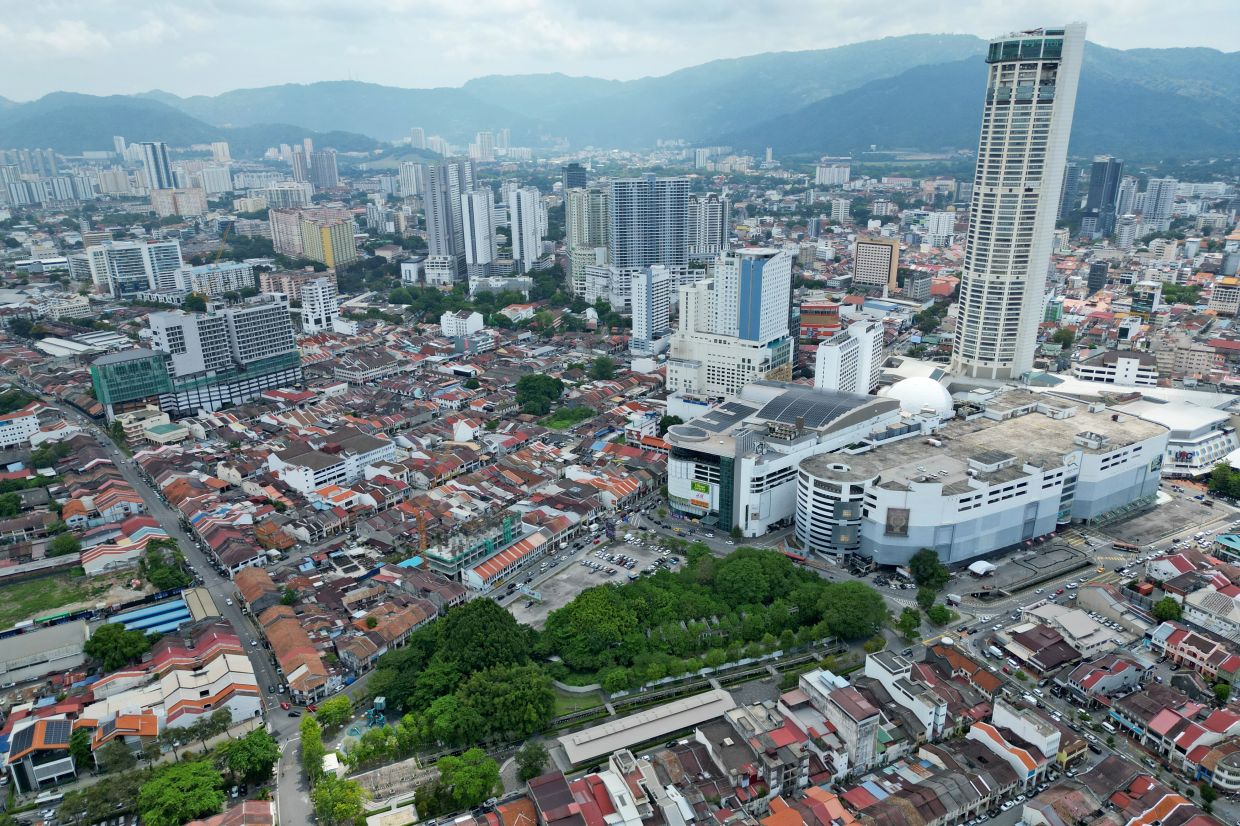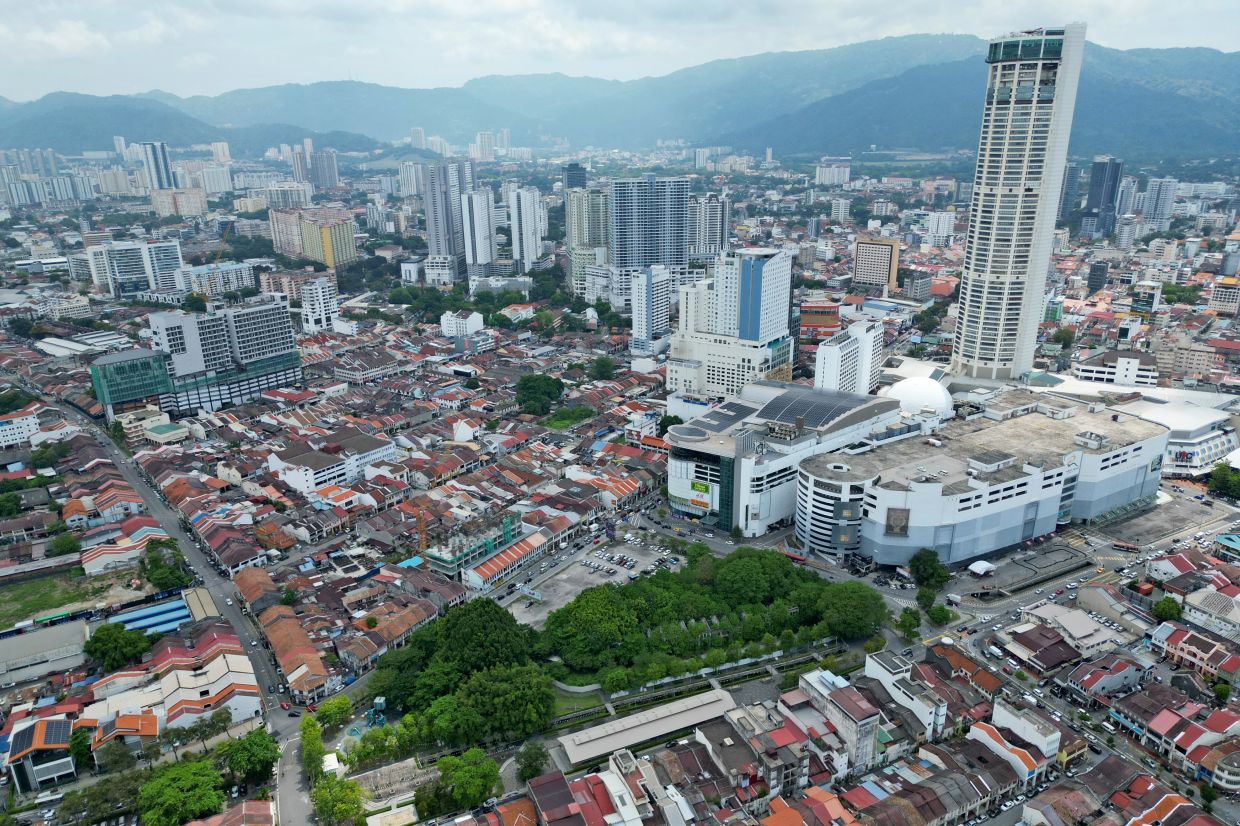
GEORGE TOWN: The Penang Ratepayers Association has urged the state government to introduce more land classification categories, particularly a “tourism” class, before imposing any quit rent increase, arguing that hotels and short-term rental operators profit heavily while residents bear the brunt of traffic congestion and rising living costs.
Its president KN Lee said that lumping tourism-related properties under the broad “business” category was unfair as it ignored the high returns such operators make compared to mixed-use residential or heritage homes.
“Tourism-exclusive properties such as hotels and short-term rentals generate significant income but also contribute to traffic congestion and pollution.
“They should be taxed at higher rates, while traditional townhouses or mixed-use homes should enjoy lower rates to encourage local occupancy,” she said in a statement on Saturday (Sept 20).
Lee said the association strongly objected to the proposed quit rent hike scheduled to take effect in 2026, describing it as “one of the steepest” in recent years.
She argued that the move was unjustified as Penang had already reaped significant revenue since parcel quit rent was introduced in 2019.
“The formula used back then was flawed and required urgent review.
“Instead of fixing it, the government is now proposing another hike, unfairly burdening ratepayers,” she said.
The association also pointed out that authorities had previously said parcel quit rent could only be reviewed after 10 years, which meant any adjustment should be deferred until 2029.
“Introducing a new hike now creates misalignment between landed and parcel quit rent, which is unreasonable and inequitable,” Lee said.
On the Penang Land Rules 2021, she said the current two-tier classification of “town” and “village” was overly simplistic and failed to reflect real conditions.
“For example, a blanket classification of Balik Pulau as a town is misleading.
“While the town centre may qualify, outer areas remain rural and should retain village rates to avoid burdening low-income residents,” she said.
Lee called for a more transparent and data-driven approach, including clear disclosure of valuation data, public town-hall sessions to explain the rationale for increases and details on how additional revenue would be used, such as for flood mitigation or traffic solutions.
She also proposed incentives for ratepayers who adopt digital systems, including waivers of minimum payments or discounts on base rates, and more varied rate bands to reflect economic conditions.
Given the current economic climate of high inflation, rising water tariffs and subsidy cuts, Lee said now was the worst possible time to raise quit rent.
““This is not the right time to impose additional financial burdens on Penang residents.
“We urge the government to postpone all increases until 2029, and to ensure any future adjustments are gradual, minimal, and data-driven,” she said.
On Friday (Sept 19), Penang Chief Minister Chow Kon Yeow announced that the state will increase its quit rent by between 29% and 200% for various land categories from 2026.
The move will affect 370,000 landowners in the state, though with a 32.5% discount in 2026 and a 20% discount in 2027 and 2028 to cushion the hike.
Chow said this follows the reclassification of town and village boundaries in the state involving 10 town boundaries with the state to gazette 25 densely built areas as townships instead of villages or rural areas.
The residential tax rate will be increased from 54sen to 70sen per square metre with a minimum payment of RM70 per lot for all land in the town category.
For rural areas, the tax rate for residential properties will be increased from 22sen to 50sen per square metre with a minimum payment of RM50 per lot.
For tax under the industrial category, it will be increased from RM1.29 to RM3.25 per square metre throughout Penang regardless of it being under town or rural areas.
Chow said the move to increase the rates was overdue, as the last adjustment occurred 31 years ago.
The 10 expanded townships are Bayan Lepas, Balik Pulau, Batu Ferringhi, Tanjung Bungah, George Town, Bukit Mertajam, Sungai Bakap, Nibong Tebal, Kepala Batas and Butterworth.
The 25 newly created townships are Bayan Baru, Batu Maung, Sungai Ara, Pulau Silikon, Bukit Jambul, Puncak Penara, Perdana Mutiara, Pinang Emas, Bayu Emas, Lembah Perai, Alma, Bukit Minyak, Bukit Tengah, Bandar Perda, Seberang Jaya, Jawi, Bandar Cassia, Simpang Ampat, Bandar Tasek Mutiara, Sungai Dua, Teluk Air Tawar, Bertam, Tasek Gelugor, Pokok Sena and Ara Kuda.






